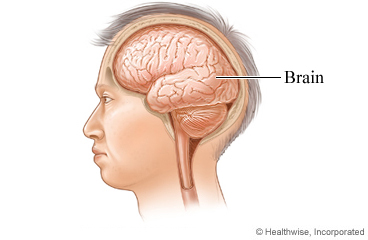
Overview
Seizures are caused by abnormal patterns of electrical signals in the brain. They are different for each person.
Seizures can affect movement, speech, vision, or awareness. Some people have only slight shaking of a hand and do not pass out. Other people may pass out and have shaking of the whole body. Some people appear to stare into space. They are awake, but they can't respond normally. Later, they may not remember what happened.
You may need tests to identify the type and cause of the seizures.
A seizure may occur only once, or you may have them more than one time. Taking medicines as directed and following up with your doctor may help keep you from having more seizures.
The doctor has checked you carefully, but problems can develop later. If you notice any problems or new symptoms, get medical treatment right away.
Follow-up care is a key part of your treatment and safety. Be sure to make and go to all appointments, and call your doctor if you are having problems. It's also a good idea to know your test results and keep a list of the medicines you take.
How can you care for yourself at home?
- Be safe with medicines. Take your medicines exactly as prescribed. Call your doctor if you think you are having a problem with your medicine.
- Do not do any activity that could be dangerous to you or others until your doctor says it is safe to do so. For example, do not drive a car, operate machinery, swim, or climb ladders.
- Be sure that anyone treating you for any health problem knows that you have had a seizure and what medicines you are taking for it.
- Identify and avoid things that may make you more likely to have a seizure. These may include lack of sleep, alcohol or drug use, stress, or not eating.
- If possible, take a shower instead of a bath. Having a seizure while in a bath can increase the risk of drowning.
When should you call for help?
Call 911 anytime you think you may need emergency care. For example, call if:
- You have another seizure.
- You have new symptoms, such as trouble walking, speaking, or thinking clearly.
Call your doctor now or seek immediate medical care if:
- You are not acting normally.
Watch closely for changes in your health, and be sure to contact your doctor if you have any problems.
Where can you learn more?
Go to http://www.healthwise.net/patientEd
Enter M769 in the search box to learn more about "Seizure: Care Instructions".
Current as of: December 3, 2024
Author: Ignite Healthwise, LLC Staff
Clinical Review Board
All Ignite Healthwise, LLC education is reviewed by a team that includes physicians, nurses, advanced practitioners, registered dieticians, and other healthcare professionals.

